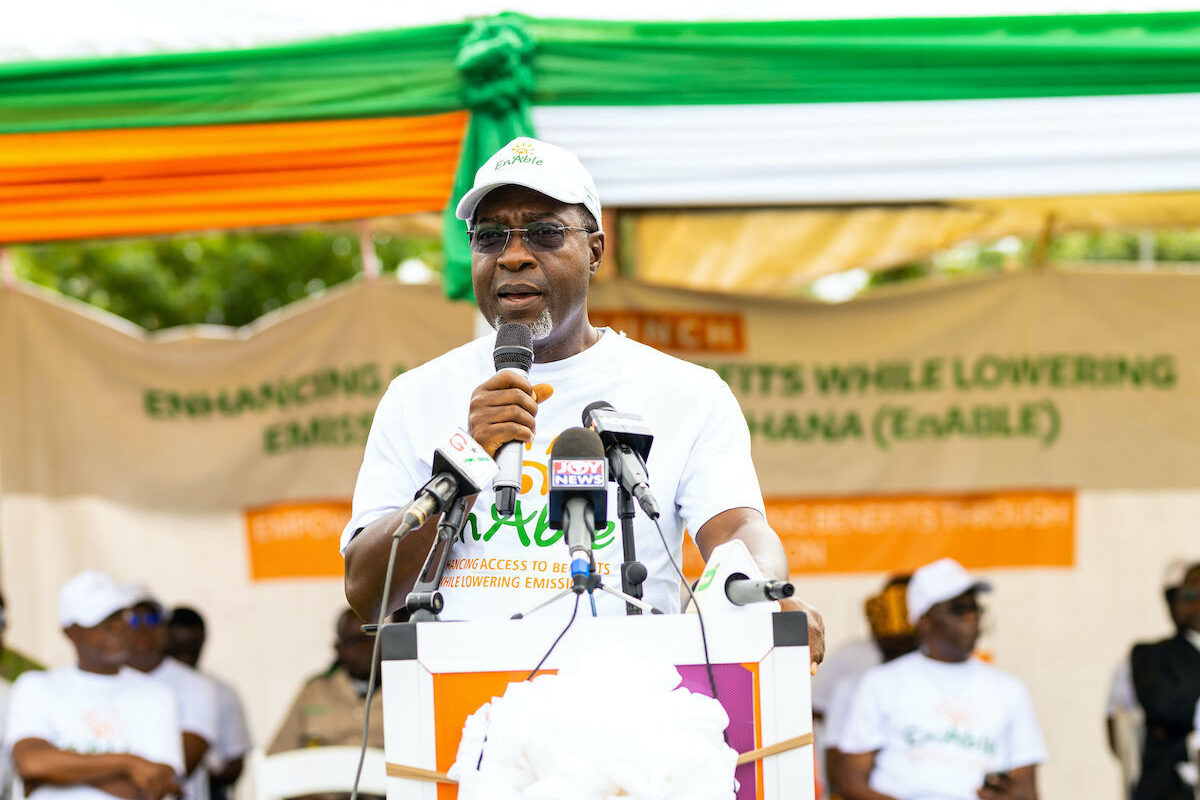Isaac Gyamfi, Regional Director of Solidaridad West Africa, giving the welcome address at the launch event for the EnABLE initiative in Ghana.
Women, youth, migrants and differently-abled individuals play a critical role in Ghana’s cocoa production and forest conservation efforts, yet they often remain excluded from the benefits of climate initiatives, facing persistent barriers to resources, decision-making, and participation in emissions reduction programmes.
Solidaridad and Tropenbos Ghana, with funding from the World Bank, have launched the Enhancing Access to Benefits while Lowering Emissions (EnABLE) project to ensure vulnerable groups in cocoa-growing communities have equitable and inclusive access to carbon and non-carbon benefits from Ghana’s emission reduction programmes.
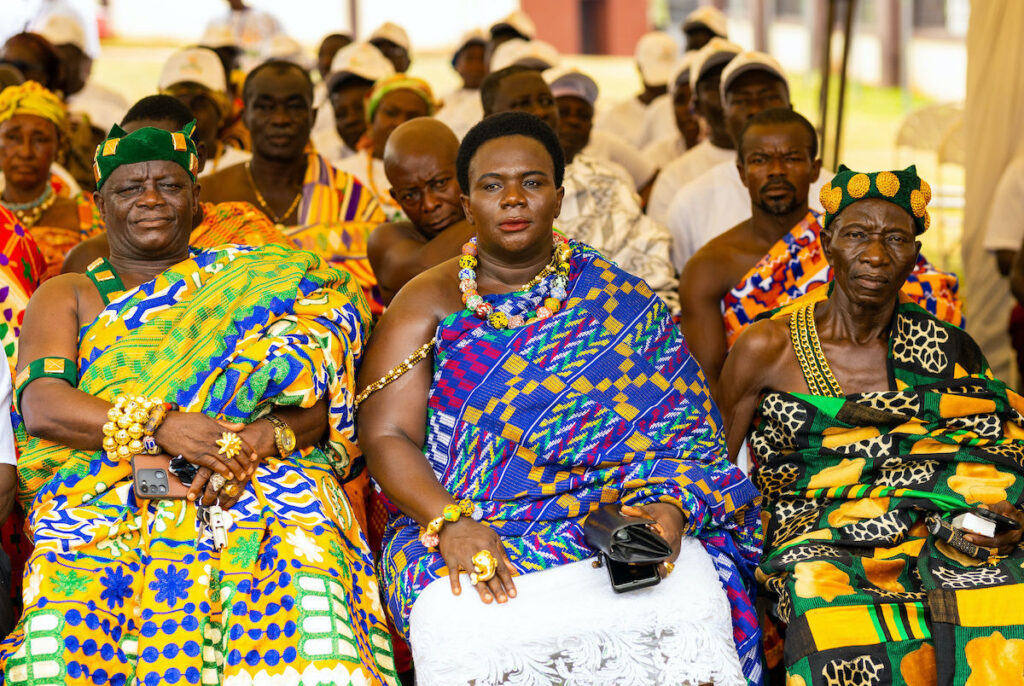
The project will engage 20,000 cocoa farmers across 100 communities in six Hotspot Intervention Areas between 2024 and 2027.
“Cocoa is a major cash crop in Ghana, sustaining thousands of farmers and their families. However, climate change is posing a serious threat to this vital sector. The launch of the EnABLE project is timely, as it complements existing efforts like the Ghana Cocoa Forest REDD+ Programme to tackle deforestation and promote sustainable livelihoods,” Charity Gardiner, the Regional Minister for the Ahafo region, said.
Enhancing Equity and Sustainability in Ghana’s Cocoa Sector
In 2016, Ghana developed the Ghana Cocoa Forest REDD+ Program (GCFRP) as part of its broader strategy to combat climate change and preserve its rich forest resources. The program aimed to significantly reduce deforestation and forest degradation by promoting sustainable land-use practices, strategic policy reforms, integrated coordination, and effective monitoring.
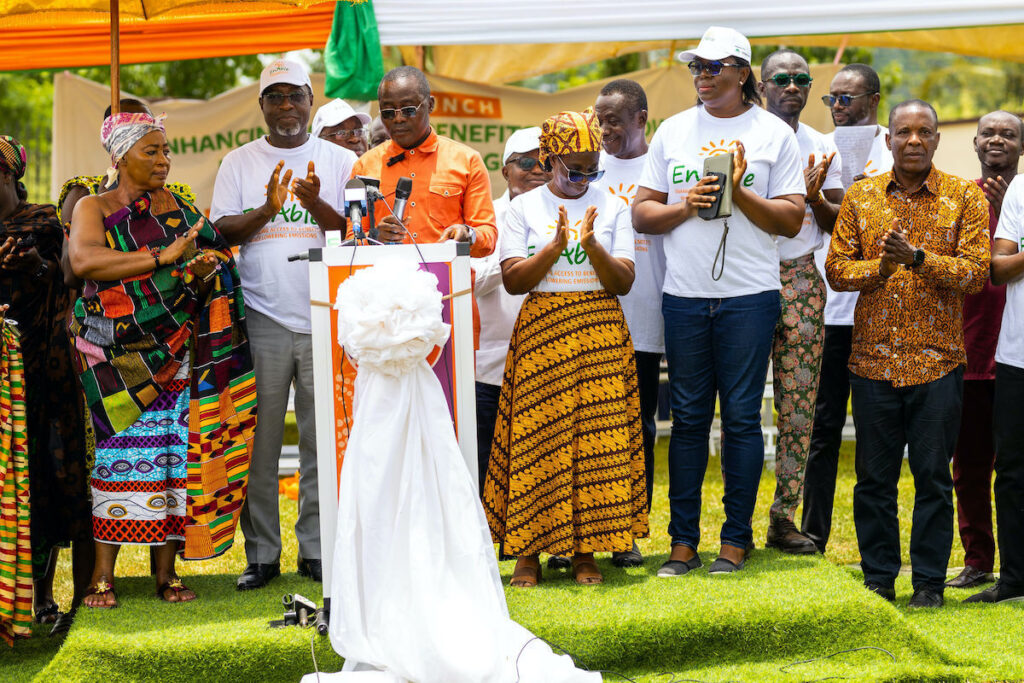
The EnABLE project will complement the Ghana Cocoa Forest REDD+ Program by specifically targeting groups often excluded from accessing the benefits generated through emissions reduction initiatives. This includes women, youth, and migrant farmers, who play crucial roles in cocoa production but may lack representation in decision-making processes.
The project will address these barriers by building the capacity of local farmers to engage in emissions reduction initiatives, promoting climate-resilient livelihoods for women and youth to enhance productivity and reduce pressure on forests, and creating a robust management system for benefit-sharing.
“The World Bank’s mission is to end extreme poverty and promote shared prosperity on a livable planet. The EnABLE project is a strong reflection of this vision. Through this initiative, we are not only addressing environmental sustainability but also ensuring that vulnerable groups — women, youth, persons with disabilities, and local communities — are fully included,” Patrick Ansah, a member of the project implementation task team at the World Bank, intimated.
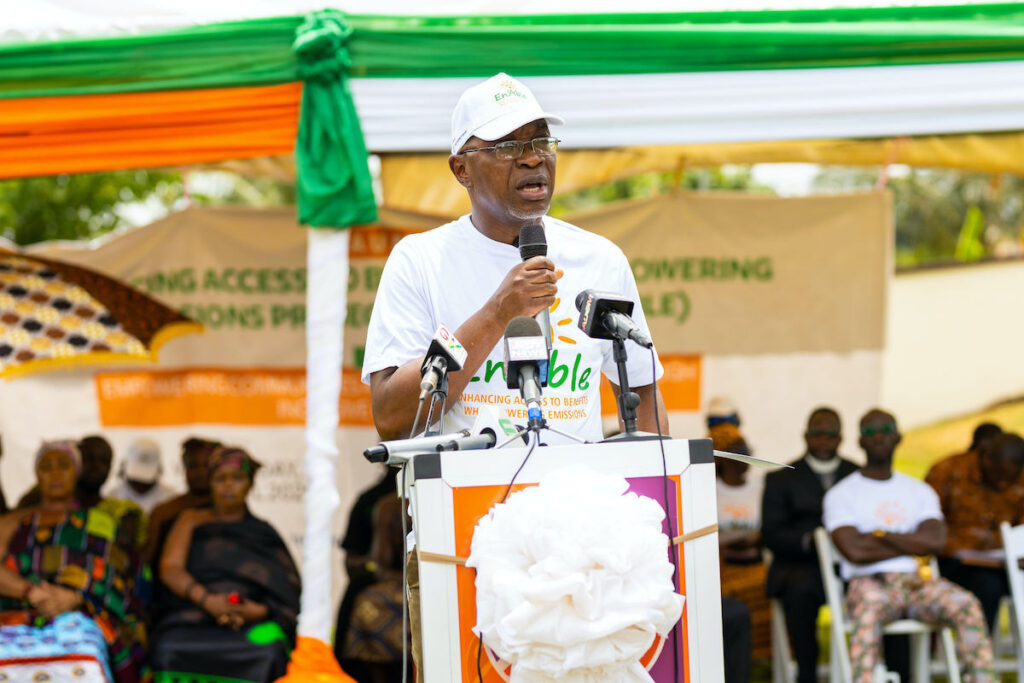
The launch brought together traditional authorities, community leaders, farmer groups and government agencies and officials who pledged their collective effort to combat climate change, strengthen livelihoods, and ensure the equitable sharing of benefits.
Isaac Gyamfi, Regional Director for Solidaridad West Africa, indicated Solidaridad has remained at the forefront of climate action, championing sustainable solutions that support farmers in adopting climate-smart agricultural practices that improve productivity, reduce carbon emissions and enhance community resilience.
“The project provides a unique opportunity for Solidaridad to leverage the gains made under similar initiatives to scale up sustainable land management efforts, curb deforestation, promote ecosystem restoration, and ensure inclusive benefit sharing of benefits that accrue from the emission reduction programme,” he said.
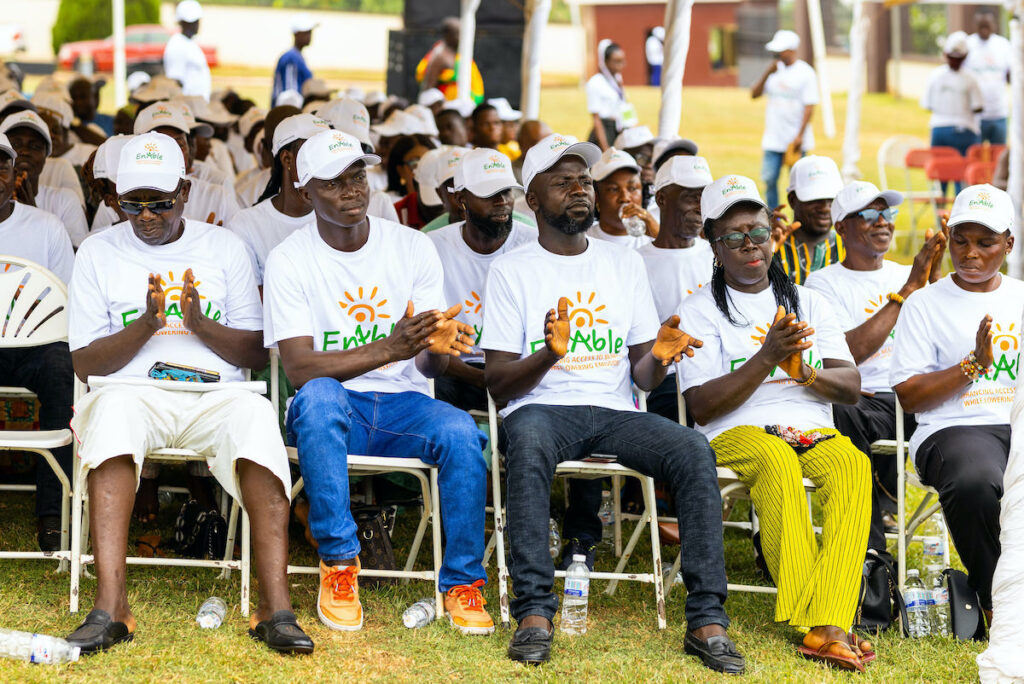
Key components of the project
The EnABLE project is structured around three main components, each designed to address specific challenges faced by local communities:
- Building Knowledge and Capacity: The project will enhance the capacity of target groups on REDD+ and benefit-sharing mechanisms through targeted training workshops and educational materials.
- Promote locally led climate-resilient livelihoods for women and value chains: The project will support women and youth with training in sustainable farming techniques, agroforestry, and value-added processing, to improve productivity and income while reducing deforestation.
- Project Management and Knowledge Sharing: The project will establish a robust monitoring and evaluation framework to track progress and share knowledge or lessons learned with stakeholders to inform future initiatives.
“We are confident that the project will serve as a model for inclusive benefit-sharing and sustainable forest management, ultimately strengthening the resilience ofour communities, reducing emissions and protecting our forests for generations to come,” said Mercy Owusu Ansah, Director of Tropenbos Ghana.
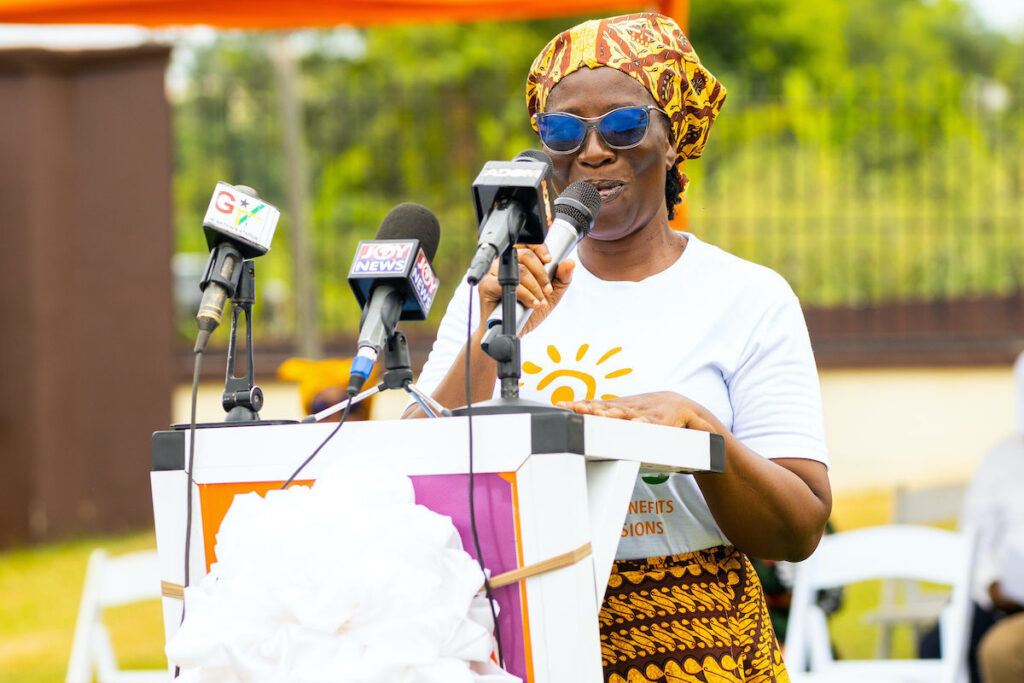
Next Steps
The Steering Committee, to serve as an advisory body and provide strategic guidance for the effective implementation of the project, is being constituted. It will comprise representatives from Solidaridad, Tropenbos Ghana, the Ghana Forestry Commission, Ghana Cocoa Board, Hotspot Intervention Areas Management Boards, the Ministry of Finance and Civil Society Organizations.

